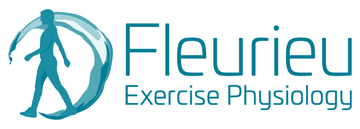Exercise is a vital component of a healthy lifestyle. Whether you’re a seasoned athlete or just starting your fitness journey, one aspect of your routine that is crucial is the warm-up. Yet, it’s surprising how often this crucial step is neglected or rushed through. In this blog post, we’ll explore the importance of a proper warm-up before exercise and how it can benefit your overall fitness and well-being.
Injury Prevention

One of the primary reasons for warming up before exercise is injury prevention. When your muscles are cold and stiff, they are more prone to strain, tears, and other injuries. A warm-up gradually increases your heart rate and circulation, which in turn raises the temperature of your muscles. This increased muscle temperature makes them more pliable and less susceptible to injury. Think of it like taffy – it’s easier to stretch and mould when it’s warm.
Improved Muscle Function

A good warm-up also enhances muscle function. As your muscles warm up, they become more efficient at contracting and relaxing. This means better performance during your workout, as well as improved overall strength and endurance over time. Warm muscles are more responsive and can generate more force, helping you lift heavier weights or run longer distances with greater ease.
Enhanced Flexibility
Flexibility is a key component of fitness and is crucial for preventing injuries and improving overall mobility. A warm-up routine that includes dynamic stretching can significantly enhance your flexibility. Dynamic stretches involve controlled movements that take your joints and muscles through their full range of motion. This not only prepares your body for the exercises to come but also helps improve your flexibility over time.
Mental Preparation
Exercise isn’t just a physical challenge; it’s also a mental one. Warming up gives you the opportunity to focus your mind on the workout ahead. It’s a time to mentally prepare, set your intentions, and get into the right mindset. By the time you finish your warm-up, you should feel mentally ready and motivated to tackle your workout with enthusiasm.
Cardiovascular Benefits

Your heart and lungs play a crucial role in your ability to exercise effectively. A proper warm-up gradually increases your heart rate, which, in turn, prepares your cardiovascular system for the increased demands of exercise. This helps prevent a sudden spike in blood pressure and reduces the risk of heart-related issues during your workout.
RAMP it up!
The RAMP warm-up has been shown to be one of the most effective warm-ups for athletes. RAMP stands for…
R= Raise– Increase muscle and core temperature, blood flow, muscle elasticity and neural activation.
A= Activate– Engage the specific muscles that are required for the upcoming movement.
M= Mobilise– Focus on what movement patterns are required and improving upon any specific limitations you may have.
P= Potentiate-Gradually increase the load on the body in preparation for the upcoming movement.
Following these principles, you will have a complete warm-up without missing any pieces of the puzzle. Through specificity, these warm-ups do not have to be long, tedious, drawn out process and become precise and effective.
Incorporating a warm-up into your exercise routine should never be viewed as optional. It’s a vital step that offers a multitude of benefits, including injury prevention, improved muscle function, enhanced flexibility, mental preparation, and cardiovascular benefits. Whether you’re planning a rigorous training session or a leisurely walk, taking the time to warm up properly can make a world of difference in your overall fitness and well-being. So, the next time you’re tempted to skip the warm-up, remember that it’s a small investment with big rewards for your body and your health.
Author: Tate Marino, Accredited Exercise Physiologist




